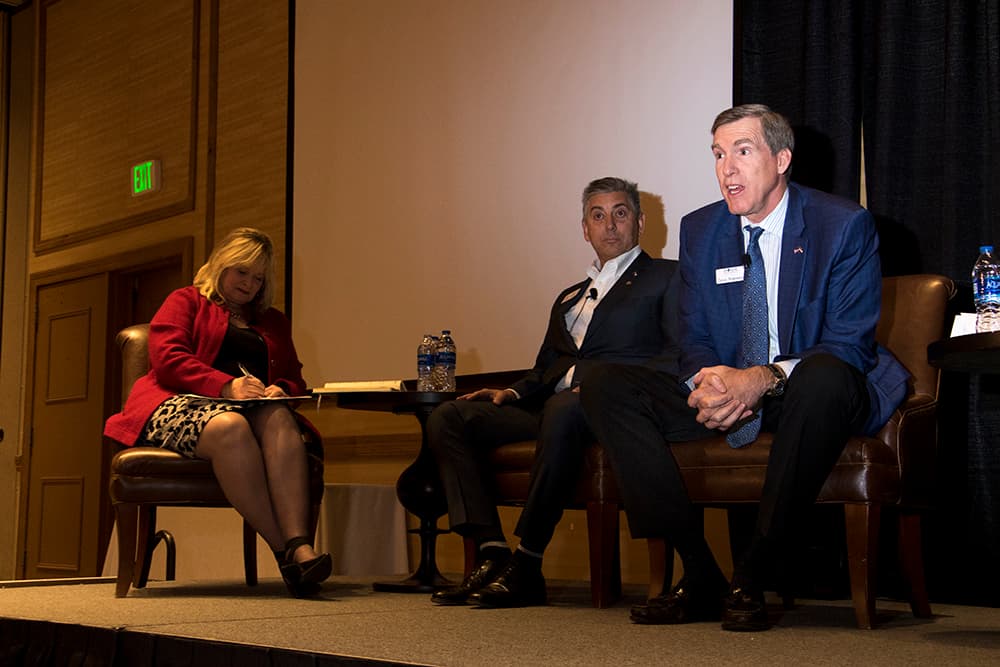
Rising prices, huge disparities between urban and rural parts of the state and a looming opioid crisis -- no one really disagrees on the health care challenges that will face the next governor of Colorado.
But what to do about it? That's where it gets tough.
Three Republicans and four Democratic candidates for governor addressed the Colorado Health Institute's Hot Issues in Health conference on Friday. Their ideas ranged from consumer-focused solutions like transparency in health-care pricing to big proposals like expanding Medicaid to everyone -- or getting rid of the Medicaid expansion entirely and funding a network of nurse-practitioner clinics.
We've rounded up some of the highlights and stuck a link to the video of the panel discussions at the bottom.

There were two lines that drew applause from the audience.
Attorney General Cynthia Coffman's frank call to action on the opioid crisis and Lt. Gov. Donna Lynne's frank criticism of moving Medicaid to a block grant system both prompted the outwardly neutral audience to respond.
Coffman was answering a question about harm reduction approaches to opioid use and whether as governor, she would encourage communities to adopt practices like needle exchanges and safe injection sites. Harm reduction doesn't directly tackle addiction but aims to keep addicts alive until the day they're ready to make a change. It also limits the harm to their loved ones by reducing the spread of bloodborne diseases like HIV and hepatitis.
These approaches are often controversial because they conflict with widespread social values around drug abuse and personal responsibility. The El Paso County Board of Health recently balked at pursuing a needle exchange there.
Both Mitchell and Robinson said they were open to pilot programs but they would need to see more data before reaching any conclusions. While allowing for different "norms" in different communities, Coffman said we have the data we need already, and it's time for action.
"I think the data is dead bodies washing up in Cherry Creek," she said. "I think it's people found with needles in their arms on Colfax. I think it's dead children being buried by their parents because they overdosed in their bedroom at age 15 when the parents didn’t know there was a drug problem.
"We have data. We have a public health crisis. We have to look at every possible way that communities are comfortable with, and we have to give them flexibility to things that are within the norms of their community. But we have to make sure we don't have an outbreak of Hepatitis C. We have to think about HIV/AIDS and a resurgence. We saw what happened in the state of Indiana last year with a cluster related to the opioid epidemic. It could happen in Colorado.
"We have to be realistic, and we may have to do some things that are not particularly palatable. But we can't let people continue to overdose and dying and never having the ability to reach their potential."
That's what the audience of health care policy professionals wanted to hear, and they responded with strong applause.
The audience also applauded loudly when the Democratic candidates were asked about the possibility of converting Medicaid to a block grant program, and Lynne rejected the idea that block grants are about providing states with flexibility.
"I think block grants are just subterfuge for cutting our Medicaid funding, plain and simple," Lynne said.
Democrats have a lot of ideas on health care.
Cary Kennedy, a former state treasurer and chief financial officer and deputy mayor of the city of Denver, wants to create a Medicaid-for-all plan that would allow people whose premiums are too high to buy into Medicaid. They would pay the full cost of their premium but get access to the services and doctors covered by Medicaid at low rates.
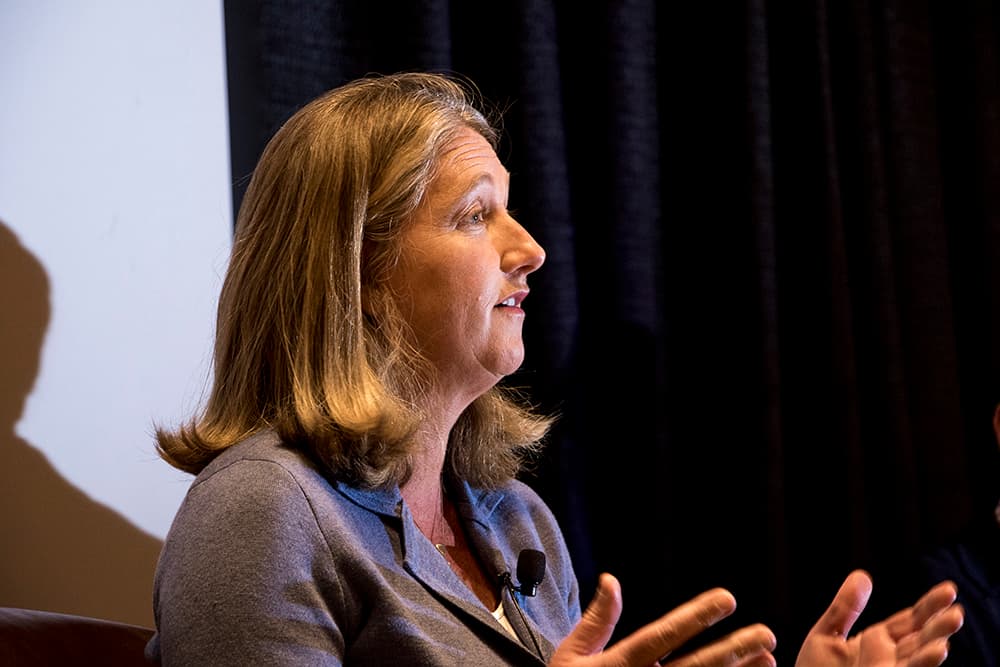
Mike Johnston, a former state legislator and educator, wants more transparency in pricing. He contrasted the experience of taking his dog to the vet, where he gets a detailed explanation of the cost and the pros and cons of each treatment and the experience of taking his children to the doctor, where the costs are a mystery until the mail arrives a few weeks later. (Republicans Coffman and Mitchell also want to see more price transparency.)
Johnston said the state would change to paying for good health outcomes rather than for services rendered. Paying for outcomes creates an incentive for holistic care, like paying nurses to visit people with chronic health conditions at home to make sure they're following treatment recommendations and helping them overcome any challenges or barriers to doing so. Johnston also wants to lower premiums in rural counties by increasing competition there. He'd do that by requiring any health insurance company bidding on state contracts to offer insurance in rural counties.

Noel Ginsburg, a businessman seeking office for the first time, said he'd try to partner with other states to create a larger health insurance exchange to lower costs. This is an idea that Gov. John Hickenlooper has also suggested.
Lynne offered either a reality check or a dose of pessimism.
The biggest challenge a Democratic governor will have is holding on to what we already have, she said. The Children's Health Insurance Program was allowed to expire, and while Sens. Michael Bennet and Cory Gardner have offered bipartisan support for its renewal, the program might not be saved. The final version of the Republican tax bill might well include a repeal of the individual mandate at the heart of the Affordable Care Act.
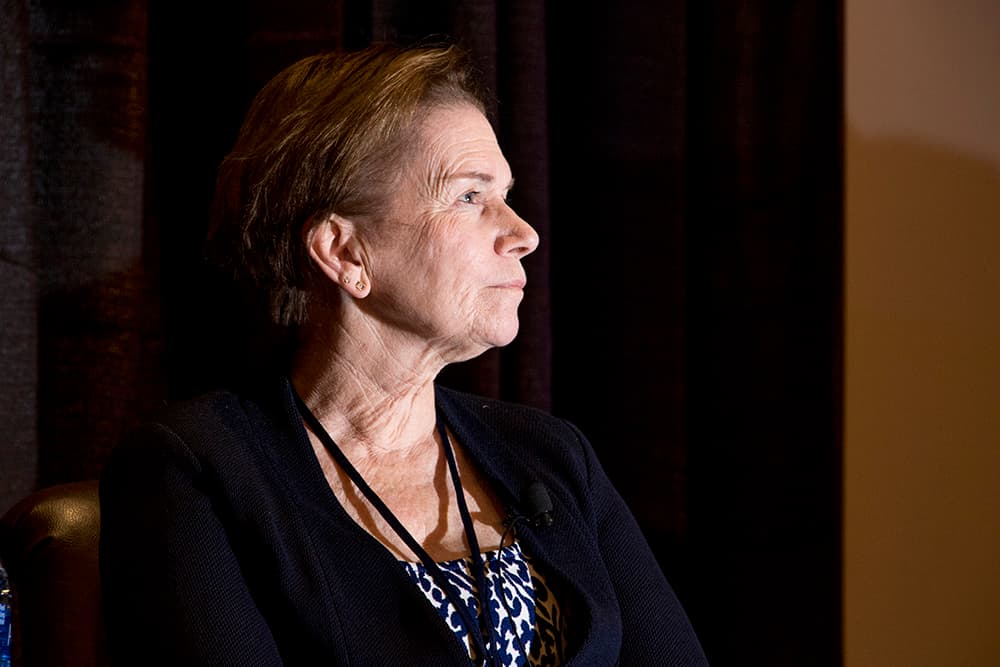
The ideas being proposed at the state level also bring political challenges.
"Many of the things we've talked about have been tried and haven't succeeded," said Lynne. "Tried" in the sense that Democrats tried to pass something and couldn't, not "tried" in the sense of "implemented." Lynne described herself as a "survivor" of the 2017 legislative session, where a suite of health care bills she helped develop with a working group and for which she secured Republican co-sponsors died in a "kill" committee in the Republican-controlled Senate.
Unless the legislature changes hands, there will be limits to what can be accomplished there. A former Kaiser executive, Lynne said she has the insider knowledge of how health care works and the administrative chops to pursue changes without legislative cooperation.
One thing the state has already done is impose limits on pain prescriptions for Medicaid patients after the General Assembly failed to act on a seven-day restriction. That doesn't cover everyone, but it starts to change the culture and tone of how doctors practice, Lynne said.
"When we couldn't get it done in the legislature, we got it done ourselves," she said. "... Those are the things you can do as a strong governor, an informed governor, because you don't always need the legislature."
In contrast, Kennedy and Johnston both touted their ability to work with Republicans and pass legislation on issues that historically have been contentious and partisan.
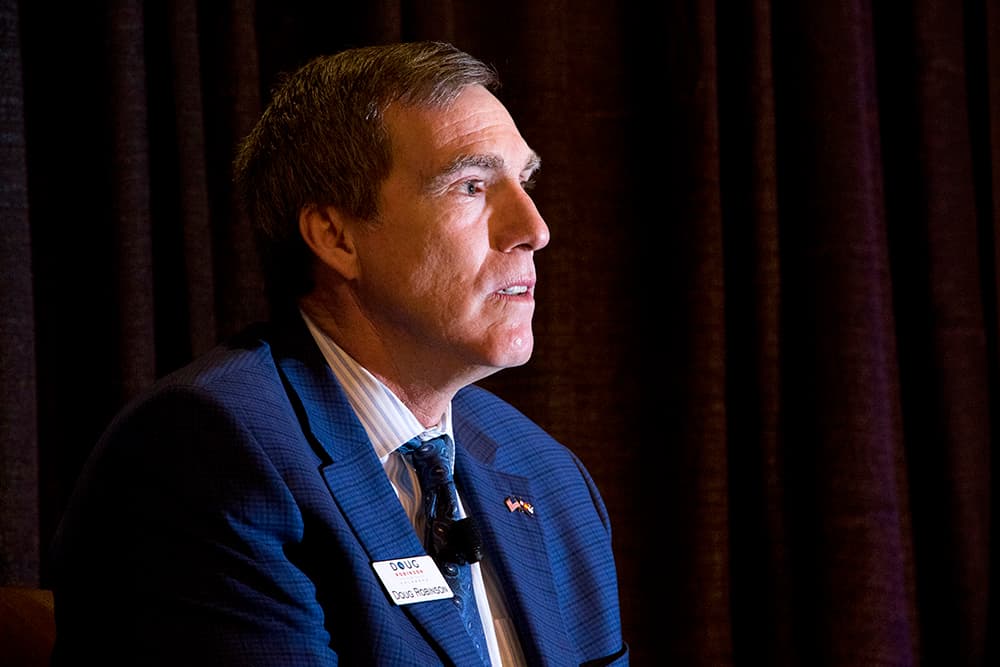
We don't all live in the same health care world.
When the three Republican candidates were asked about a personal experience with health care that shapes their police approach, Doug Robinson, a former investment banker and nephew to Mitt Romney, described moving heaven and earth to get the right care for his youngest child when the boy started having between 80 and 100 seizures a day. It's a terrifying prospect for any parent. Robinson said he and his wife found one of the country's foremost experts on epilepsy in New York, but the receptionist told them it would be four-month wait for an appointment. Robinson said he worked personal connections until he could get the doctor's cell phone number and flew out that very day when the doctor agreed to see them.
The doctor's treatment worked, and the boy has been able to have a pretty normal childhood.
"That has given me a profound appreciation for the health care system that we have and how great a health care system we have and the need to provide very high quality care for all citizens," Robinson said, acknowledging that his family was "fortunate" to have the resources and connections to pursue specialized treatment.
Is health care the biggest issue facing the state?
Victor Mitchell, an entrepreneur and former state lawmaker, was the only Republican to put it at the top.
Robinson said it was the second most important issue after the question of how we manage growth, and Coffman ranked it third.
The Democrats were asked a slightly different question: What's the biggest issue facing the state that's not health care? They all said education.
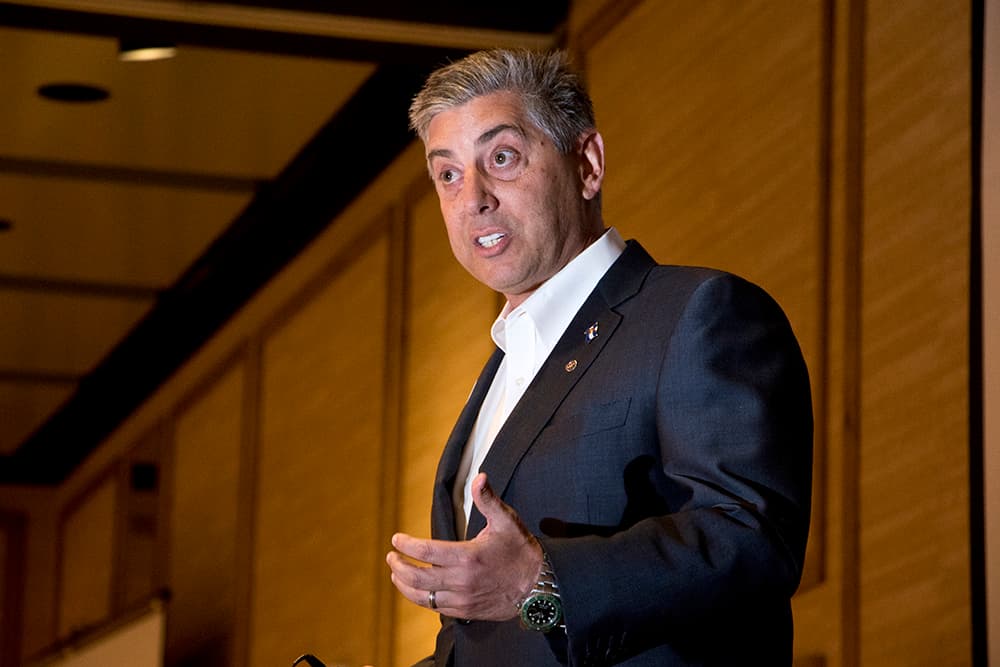
Mitchell wants to get rid of the Medicaid expansion.
Mitchell was highly critical of the Affordable Care Act, saying insurance companies, hospitals and drug companies have benefited while consumers pay through the nose. He would withdraw Colorado from the insurance exchange and end its participation in the Medicaid expansion, which made the program available to many low-income working people who previously earned too much to qualify.
More than 450,000 Coloradans have health insurance through the Medicaid expansion.
Mitchell said he helps fund a clinic in Virginia that provides primary care through nurse-practitioners. The clinic doesn't take insurance and provides a wide range of basic services at very low cost. He described the clinic as much more efficient than the Medicaid clinics he has visited in Colorado.
Mitchell said he would take the money that previously funded the Medicaid expansion and use it to provide grants to nurse practitioner and physician assistant-staffed clinics. The grants would cover half their costs, with the rest coming from fees and donations.
Mitchell said that would return insurance to its original purpose of covering major illnesses and emergencies, but he didn't explain what would happen to people previously covered by Medicaid when the low-cost mammogram or colonoscopy at the clinic finds cancer.
For more, check out the livestream. Candidates start around 2:43.











